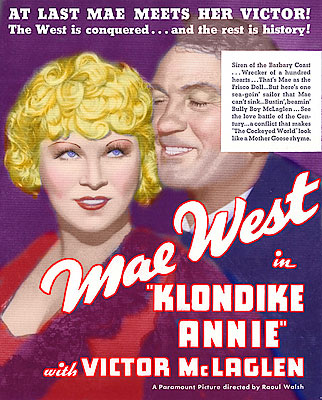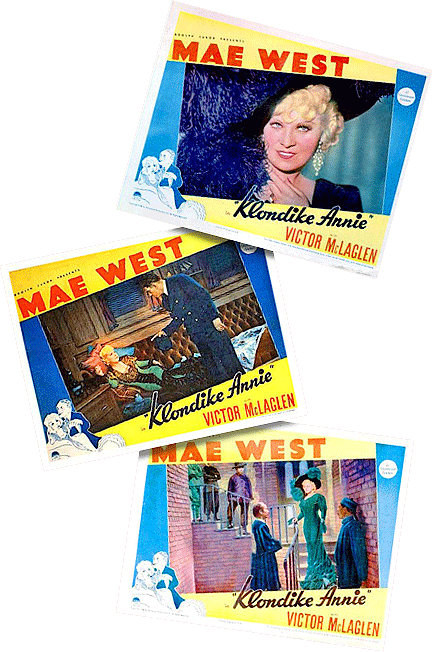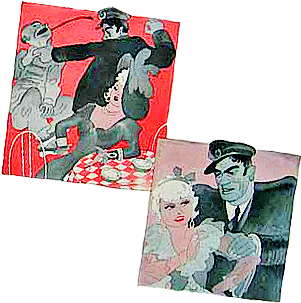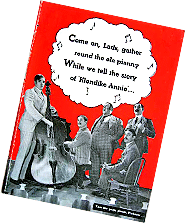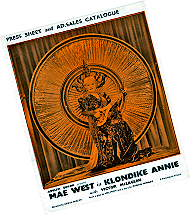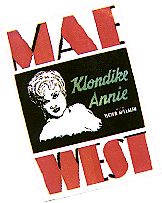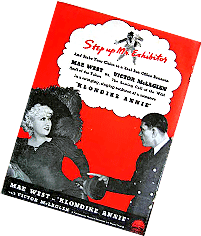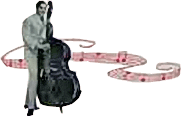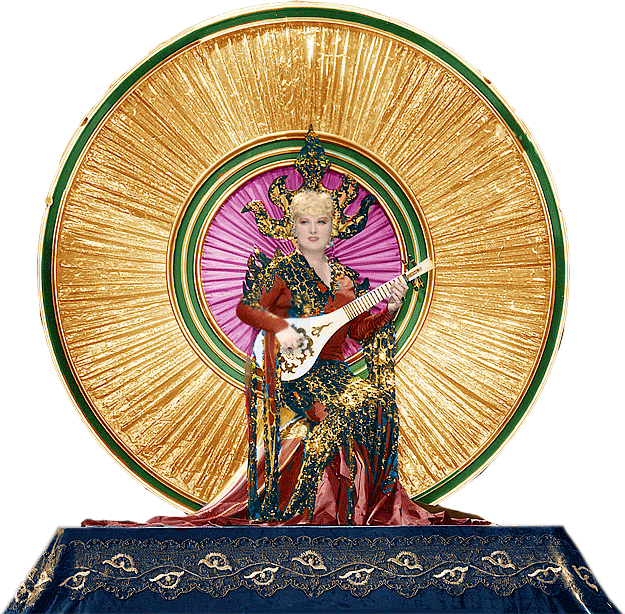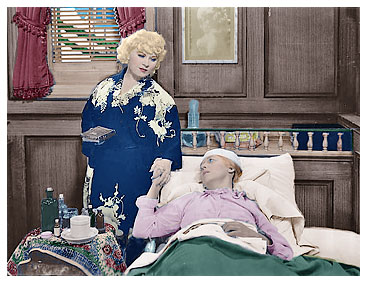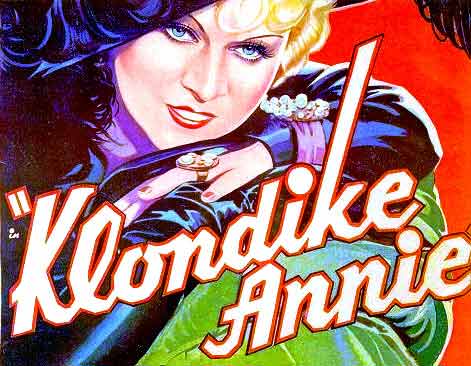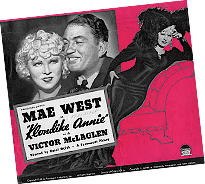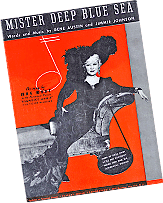Paramount Pictures
Raoul Walsh
William LeBaron
Mae West
21 February 1936
77 minutes
Mae West, Victor McLaglen, Phillip Reed, Helen Jerome Eddy, Harold Huber
Raoul Walsh
William LeBaron
Mae West
21 February 1936
77 minutes
Mae West, Victor McLaglen, Phillip Reed, Helen Jerome Eddy, Harold Huber
In “Klondike Annie” Mae plays Rose Carlton, also known as “the Frisco Doll”. The film opens in Chinatown with Rose Carlton clearly and reluctantly in the control of Chan Lo, an oriental hood who owns the nightclub she is performing in.
Studio:
Director:
Producer:
Screenplay:
Release date:
Running time:
Cast:
Director:
Producer:
Screenplay:
Release date:
Running time:
Cast:
The film is based on an original story by Miss West, which she had planned to put on the stage, and which combines themes of racism, murder, torture, misogyny and religion. Hardly surprising, therefore, that Mae had such a tough time of it with the censor and the church (and ultimately Paramount) over the content of this film.
Mae’s first song in the picture is “I’m an Occidental Woman in an Oriental Mood for Love”. She sings this whilst seated alone on stage, captured in the circle of an artfully oriental background, wearing an elaborate oriental costume and strumming an unusual looking guitar-like instrument. The effect is stunning. The imagery used in this opening shot is wonderful and is a foretaste of what we are about to learn i.e. that she is a virtual prisoner of Chan Lo, not allowed to have any other gentleman friends of her own race.
At the very last minute, following previews where the audience was reportedly shocked by the film, Paramount took cold feet and deleted certain key scenes for fear of causing outrage upon general release. The deleted scenes were the killing of Chan Lo by Rose and Rose dressing up the dead missionary, Sister Annie Alden, as a common prostitute and then steeling her identity. This butchery leaves the finished film disjointed and the viewer wondering what they might have missed.
“Klondike Annie” should have been Mae West’s best movie and perhaps the one to launch her as a more serious actress and writer for the screen. Traces of what might have been pepper the film which, even in its butchered state, remains a competent piece that is enjoyable and amusing but which falls short of the fully developed drama Mae intended to serve up. A dramatic killing on screen and a quick-witted change of character would surely have stretched her screen character? She had done nothing like this since She Done Him Wrong and, perhaps battle scarred by the her experience with Paramount, the censors and even the public, on “Annie” that she attempted nothing like it thereafter. Her subsequent films, whilst amusing, have no hint of the progressive playwright who arrived from Broadway only a few short years before.
Mae is surrounded by a strong cast, including Victor McLaglen who plays Rose’s bit of rough and with whom she eventually throws in her lot. She gets to sing a few good songs, all sensitively staged to fit the drama that is unfolding. Among them is the beautiful “Mr Deep Blue Sea” sung to McLaglen on board his ship and “Little Bar Butterfly” which she sings with gusto (in the guise of Sister Annie Alden) at a service in the Mission House.
Perhaps one day the missing scenes will show up and we’ll all get to see the film Mae wanted us to see. The good news is that a fan swears he saw the film in its original totality on regional US TV many years ago. So it may well still be out there somewhere. Fingers crossed……..


